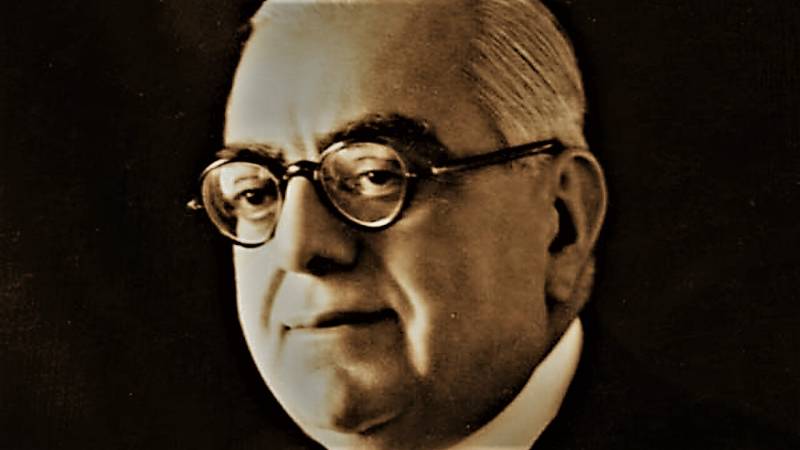
Sir Sultan Mohammad Shah, Aga Khan III, was one of the founders and the first president of the All-India Muslim League (AIML), the party that guided Muslims of the subcontinent to the cherished goal of a separate state.
Sir Sultan Mohammad Shah succeeded his father as Imam of the Isma'ili Muslims at the age of seven. He travelled in distant parts of the world to meet his followers, with the objective of either settling differences or advancing their welfare. Sir Aga Khan worked for the advancement of Muslims and the protection of Muslim rights in India.
Apart from being the 48th spiritual leader of the Shia Imami Ismaili community, Aga Khan III played a prominent role in world history, particularly the Pakistan Movement. He was the leader of the Simla deputation that persuaded the British government to accept Muslim demands, which said the position accorded to the Muslim community should be based not merely on their numerical strength but also on their political importance.
Till the late 1930s, the Muslim League was not a large political party with popular support. Aga Khan shared the belief that Muslims should first build up their social strength through advanced education before engaging in politics. He called on the British rulers of India to consider Muslims to be a separate nation within the country.
He remained president of the Muslim League till 1912. He also remained a major influence on the party's policies and agendas afterward.
During the three Round Table Conferences in London from 1930–32, he played an important role to bring constitutional reforms in British India. In 1934, he was made a member of the Privy Council and served as a member of the League of Nations (1934–37), becoming the president of the League of Nations in 1937. He was said to be influenced by the views of Sir Sayyid Ahmad Khan and was one of the backers of Aligarh University.
He can be deemed an Islamic modernist and an intellectual. He believed there to be no contradiction between religion and modernity and urged Muslims to embrace modernity. He was intellectually open to western philosophy and ideas, and believed that engagement with them could lead to a revival and renaissance within Islamic thought.
He strongly believed that education was the ultimate tool with which Muslims could be empowered and taken on the path to prosperity. Taking forward his firm belief in education, he helped Muslims build institutes of educational excellence for their intellectual, social, and economic development.
In recognition of his tireless commitment to the cause of educational development in 1902, the viceroy, Lord Curzon, unanimously nominated him as a member of the Imperial Legislative Council. He was only 25 years old then.
He was an advocate of female education and said, "If I had two children, one was a boy and the other a girl, and if I could afford to educate only one, I would have no hesitation in giving higher education to the girl." He emphasized that a woman's influence in the family circle was enormous and the future of the generations depended upon her ability to lead the young along the right path and instruct them in the rudiments of culture and civilization.
Sir Sultan Mahomed Shah Aga Khan established social development institutions in the subcontinent of India and Pakistan "for the relief of humanity". They include institutions such as the Diamond Jubilee Investment Trust and the Platinum Jubilee Investments Limited which in turn assisted the growth of various types of cooperative societies. Diamond Jubilee Schools for Girls were set up throughout the remote Northern Areas of Pakistan. The foundations of the present education system of the Aga Khan Schools in Pakistan were laid by Sir Sultan Mohamed Shah Aga Khan III, who established over 200 schools during the 20th century, the first in 1905 in Zanzibar and in Gwadar, Balochistan, followed by schools in Dar-es-Salaam in 1906 and in Mundra, India, in 1907.
His contributions to the creation of Pakistan will always be remembered.

